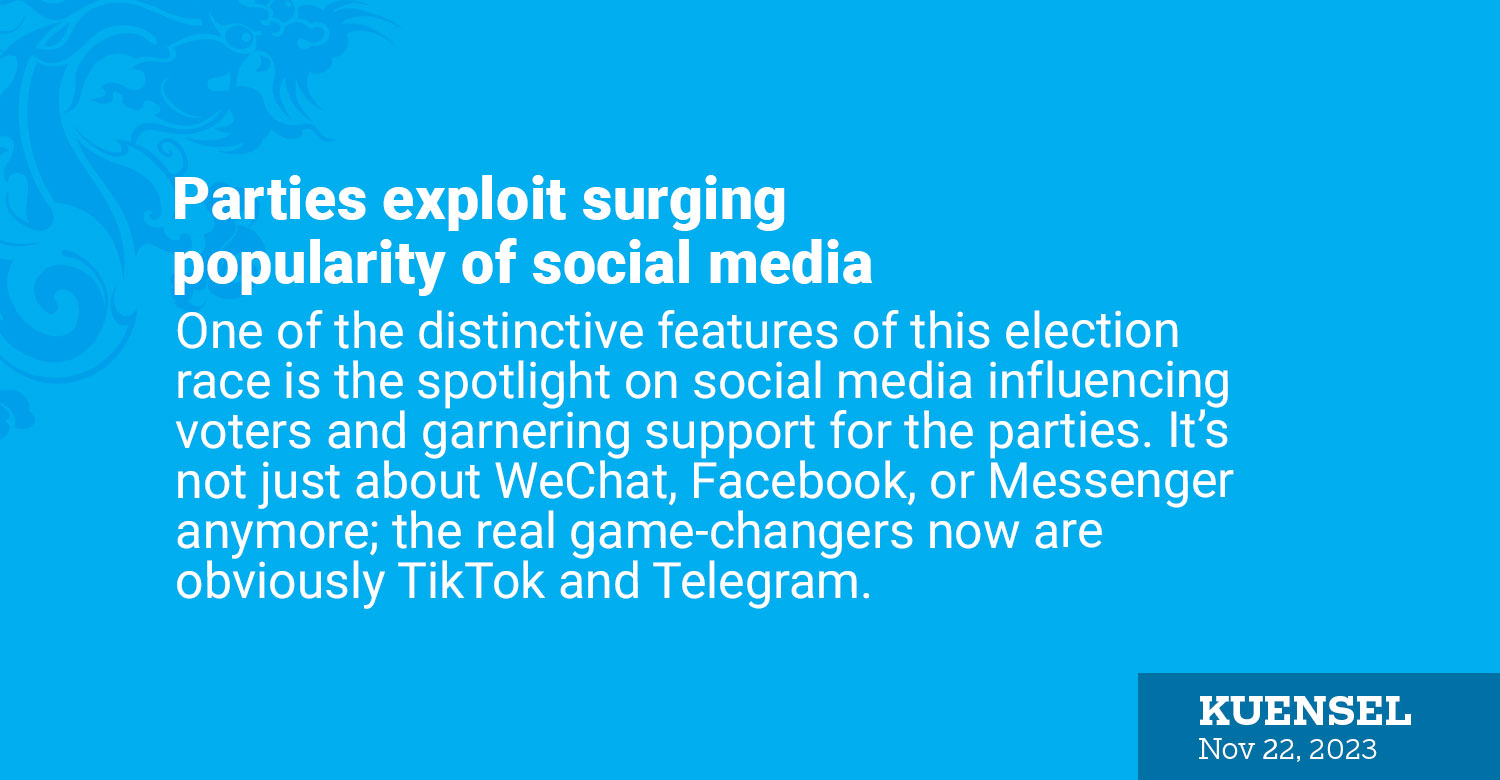KP Sharma
One of the distinctive features of this election race is the spotlight on social media influencing voters and garnering support for the parties. It’s not just about WeChat, Facebook, or Messenger anymore; the real game-changers now are obviously TikTok and Telegram.
These social media platforms have become powerful tools and platforms for political parties to share their messages and bring supporters together. Parties and candidates have resorted to using the power of these tools to connect with voters and introduce themselves through exciting messages and clips.
Each of the five parties maintains a Telegram group where candidates and supporters discuss their plans and keep members informed about party activities. These groups also serve as platforms to address accusations made by other parties, as well as appreciate and recognise the commitments and efforts of supporters.
As of yesterday, the People’s Democratic Party (PDP) takes the lead on Telegram with over 40,000 members. Following closely, Druk Phuensum Tshogpa (DPT) has more than 39,000 members, while Druk Nyamrup Tshogpa (DNT) has over 15,900 members. Druk Thuendrel Tshogpa (DTT) has more than 16,500 members, and Bhutan Tendrel Party (BTP) is also strong with over 23,600 members.
Although the membership count in each group may not serve as a reliable predictor of election victory, a civil servant said that it certainly reflects the popularity and support base of the party among voters. “It is important to note that not all members in the group necessarily vote for the particular party, as some members are in multiple groups,” he said.
TikTok is regarded as the most effective platform for reaching a wider audience of voters. Party supporters said that these days, people regardless of age and background are actively using TikTok even in rural areas, making it a highly accessible medium.
To enhance the platform’s reach, one of the most widely shared content is video clips featuring candidates, supporters, and well-wishers dancing to the party theme songs. Lately, public debates among the candidates, whether they involve mocking or the dissemination of influential information, are also widely shared.
“TikTok has played a pivotal role in informing voters about the strengths, weaknesses, and promises of each candidate to their constituents,” said Tenzin Zangmo, an employee of a private company. She added that even her elderly parents engage in discussion about the candidates and their debate performance as they watch videos online. “Some candidates gain popularity on social media through trolling.”
Party officials also acknowledged that they have dedicated workers responsible for creating online content across various platforms. While some parties monitor and initiate productive discussions among party supporters on Telegram, they share videos on TikTok and Facebook.
“TikTok has a comparatively larger reach and is widely used by the youth, presenting a valuable opportunity to connect with them,” said a party worker.
However, such online platforms also come with the risk of fostering misinformation, spreading fake news, and sharing hateful messages against each other, creating disharmony among the people.
A former civil servant currently residing in Australia and actively following the election campaign stated that a major portion of Bhutanese society lacks proper media awareness, making them vulnerable to fake or hateful information.
“This gap may lead them to believe in misleading messages, potentially influencing voters to support incompetent candidates or parties,” he added.
He said that when people are misled by false information, it undermines the integrity of the electoral process, calling for a more vigilant approach to fact-checking and responsible information sharing.
In such a scenario, he suggested that state-owned media houses and other mainstream outlets should play a role in helping people access accurate information. To monitor activities on various social media platforms, the Election Commission of Bhutan (ECB) has appointed a media arbitrator intended for a smooth and fair election.


